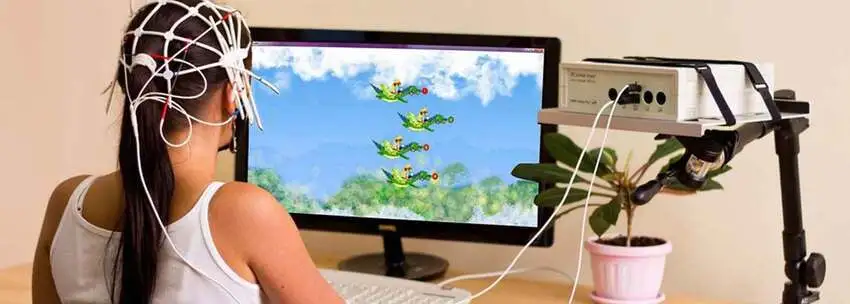Neurofeedback, like other forms of biofeedback, utilizes brain stimulation. Often known as neurotherapy, is a type of therapy that evaluates a person’s brainwave activity. It teaches people how to modify their brain activity and enhance their self-regulation. The therapy, also known as electroencephalogram (EEG) biofeedback, maps a person’s brain waves using a computer-based device. The approach monitors electrical activity on the scalp in a non-invasive manner. The brain waves that have been mapped are then linked with cues (visual or auditory) that are used to retrain the brain.
When your brainwave patterns settle, the stimulation functions as a reward for your brain. The therapy’s objective is to normalize your brainwaves if you suffer from abnormal brainwaves as a result of addiction or a mental disease such as sadness or anxiety. When your brainwaves are stabilized, you experience fewer symptoms of mental illness in daily life. Neurofeedback treatment may be beneficial if you have a mental disorder or if your drug addiction has damaged your brain’s structure and chemistry. In essence, neurofeedback therapy retrains your brain to respond appropriately to real-world activities.
How Does it Work?
Neurofeedback is distinct from the other techniques used in addiction treatment. While in therapy, you may watch a film, listen to music, or work on games or puzzles. When you are performing these exercises, unique EEG sensors on your head detect the speed of your brainwaves. Your brain receives feedback that teaches it how to fire brainwaves at a healthy rate.
For instance, if you watch a movie during a neurofeedback session, the sensors detect your brainwave activity and allow the movie to continue only when your brain is functioning normally. This input to the brain enables it to self-correct its patterns in order to maintain a healthy equilibrium, hence resulting in long-lasting structural changes.
As the structure of your brain improves, you may experience relief from some of the symptoms of depression, anxiety, PTSD, or other illnesses. Additionally, your neurofeedback therapy program aids in the treatment of a variety of other mental health issues. Migraines, headaches, panic attacks, ADHD, ADD, sleep disorders, memory problems, OCD, aggressiveness, and traumatic brain injury are just a few of the conditions that might occur.
While your neurofeedback therapy program is designed to address these specific issues, others utilize the therapy to improve their mental performance. The approach is used by professional athletes and executives to increase sleep, adaptability, and thought processing.
